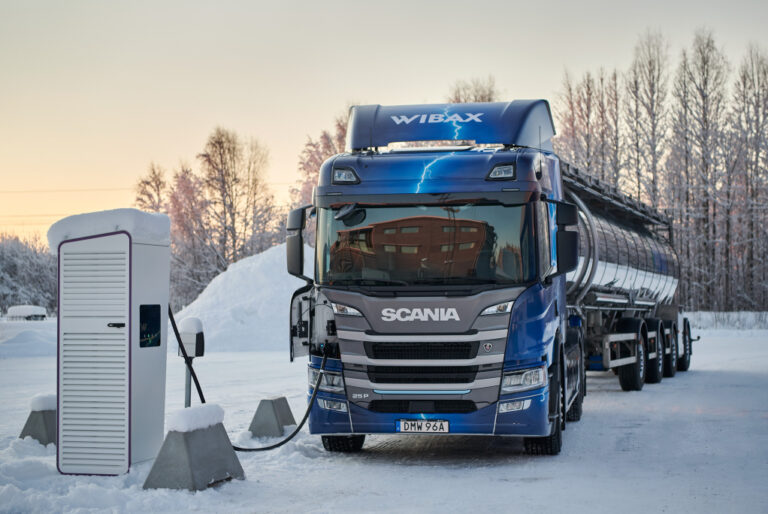Decarbonising HGVs could be a ?100 billion opportunity, says GFI

The decarbonisation of heavy-goods vehicles (HGVs) in the UK could be a £100 billion investment opportunity but urgent action is required, a new report from the Green Finance Institute (GFI) has said.
The Delivering Net Zero: Unlocking Public and Private Capital for Zero Emission Trucks report released today (30 November) signals that “a failure to overcome barriers puts the transition to a zero-emission road freight and logistics sector at risk”.
Action is required now to support HGV operators’ transition to decarbonised solutions, with many having just one more cycle of replacing their fleet before the new diesel truck end of sale date is implemented in 2035.
But why is the decarbonisation of the UK’s trucking sector so important? Although the HGV sector represents only 1% of vehicles on British roads, it takes up a disproportionally large share of the country’s transport emissions with around 20%, the report reads.
In order for the UK to fully achieve its net zero goals, urgent action must be undertaken to begin decarbonising trucking immediately.
Despite this importance, several barriers currently are restricting the wider distribution and uptake of zero-emission trucks (ZETs). For instance, the electrified variants are often two to three times more expensive than diesel trucks. The report states that to accelerate a fall in the cost of electric trucks, further intervention is required.
Another key barrier is a lack of infrastructure. Much like with EVs[1], charging infrastructure must be in place to ensure there is no range anxiety[2] and there are plenty of chargers available to drivers.
The report argues that, by 2050, between £11 billion and £24 billion will be needed for depot infrastructure alongside another £1 billion and £2 billion for public infrastructure.
Questions also remain around which technology will be best suited for zero-emission trucking solutions: hydrogen fuel cells or batteries. Hydrogen fuel cell trucks often provide superior ranges of around 600km and thus have been touted as a long-term solution for HGVs. However, green hydrogen production is still very expensive, and the UK currently has no hydrogen refuelling spots for trucks in the UK, the report states.
This however does not mean that fuel cells could not become a more prominent solution in the future when the hydrogen sector is out of its infancy[3] and the cost to refuel is significantly lower.
To ensure that the UK takes full advantage of the opportunity to decarbonise the HGV sector, GFI outlined several policy recommendations that could be implemented. These include:
- Supporting supply chain development for ZETs through a regulatory pathway or a ZEV mandate
- Amend grant and tax incentives to support ZETs
- Develop a ZET Infrastructure Strategy
- Simplify and create nationally consistent processes for grid connections and installing charging/refuelling infrastructure at depots
- Address energy price volatility to help operators make a business case to switch
- Government should support intermodal opportunities for the decarbonisation of transport, including road, rail and shipping
References
- ^ Much like with EVs (www.current-news.co.uk)
- ^ no range anxiety (www.current-news.co.uk)
- ^ the hydrogen sector is out of its infancy (www.current-news.co.uk)